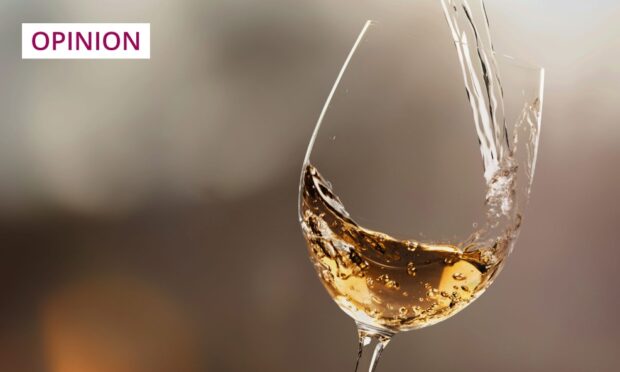As emails go, it wasn’t the best of openers.
“Dear Martel, the problem with your column…”
But Davie (“not my real name, the wife would give me pelters”) wasn’t angry.
The problem, referring to my article on attempting a Dry January a couple of weeks ago, was that it “was good, funny in parts, but it didn’t go far enough”.
Davie added: “There are people like me who know they can never have another drink in their lives.”
He explained how reliant on alcohol he used to be, how he lost his job and almost his wife.
“Five years clean, it’s easier but it’s never easy.”
It’s funny Davie should email because I’ve been wondering if my column on giving up booze for a month was a little light hearted.
In fairness, I usually err on a lighter matter than the gravitas of politics or Princes (enough Harry, enough) on the basis there’s enough out there to kill our buzz.
But my column talked of breaking a habit, not an addiction, and I’ve been wondering when that line is crossed.
And if so many exceed the recommended limit – myself included on occasion – do we have more of a problem that we’re letting on?
I am taken aback by the reaction of people when I say I’m abstaining.
“No way. Wow. The whole month? I could never do that?”
Is that not telling in itself? That we think we can’t?
Part of the reason I do it is to prove to myself that I can. The funny thing is that I’m finding it pretty easy.
Apologies if that sounds annoying. It shouldn’t (I love a bevvy – a sentiment as ingrained into our Celtic-Scottish psyche as the freezing winters) and I’d wager the two things are not entirely unrelated.
But it would be so easy not to try. A bit like going for a run – the thought of doing it is awful but it’s ok when you get going
Or even if you hate every minute, if you persevere you’re never going to regret doing it.
Dry January dangers
Experts say there’s a danger with Dry January that people think “way hay, I’m Jane Fonda, no problem here” and hit it twice as hard come February.
Alcohol is addictive. Some say if it had never existed and was invented today, it would never be legalised due to the harm it can cause.
I’ve seen alcoholism. I’m sure you have too. It can be genetic, with some more predisposed than others to become hooked. It can be a coping mechanism for historic or current trauma. What it can never, and should never, be is judged.
It’s so widely available, so trumpeted through advertising, social media and societal norms as the solution we all need to party/relax/celebrate/commiserate. It’s entirely legal.
Taking responsibility and will power are valid but if you’re freely given something you’re genetically inclined to come to rely on, how can it be your fault when that reliance kicks in?
Thinking about #DryJanuary? It's not too late!
Here are 10 reasons to give Dry January a go https://t.co/UPOFEaz0sI pic.twitter.com/XfyW40YGnX
— Alcohol Change UK (@AlcoholChangeUK) January 2, 2023
What we do have in our arsenal now, however, is knowledge that generations before did not.
And we have help, whether online or through GPs. Google ‘alcoholism Dundee’ and there are many support groups and rehab centres to contact.
There are also sobering statistics.
According to the National Record for Scotland, 43 people in Dundee died directly because of alcohol in 2020.
The 894 hospital admissions due to alcohol in 2020/21 were higher than the Scottish average, says Public Health Scotland.
And alcohol harmed Dundee City to the tune of £71.05m annually, when the amount of missed days at work, health service, social care and the repercussions of crime were tallied, with the last figures from 2012.
Alcohol Focus Scotland calculates this as £492 per person.
‘Davie is right’
So while there’s a light-hearted side, there’s a dark underbelly that’s anything but funny.
Ultimately, the choice to cut down, stop or continue is deeply personal as is the individual’s relationship to alcohol.
Davie’s right – honest talk of society’s over reliance of booze is good but it’s only going so far.
It glosses over the fact that for some, it’s not a habit that can be dropped and picked up with relative ease.
Davie, I hope you like this week’s column.












Conversation